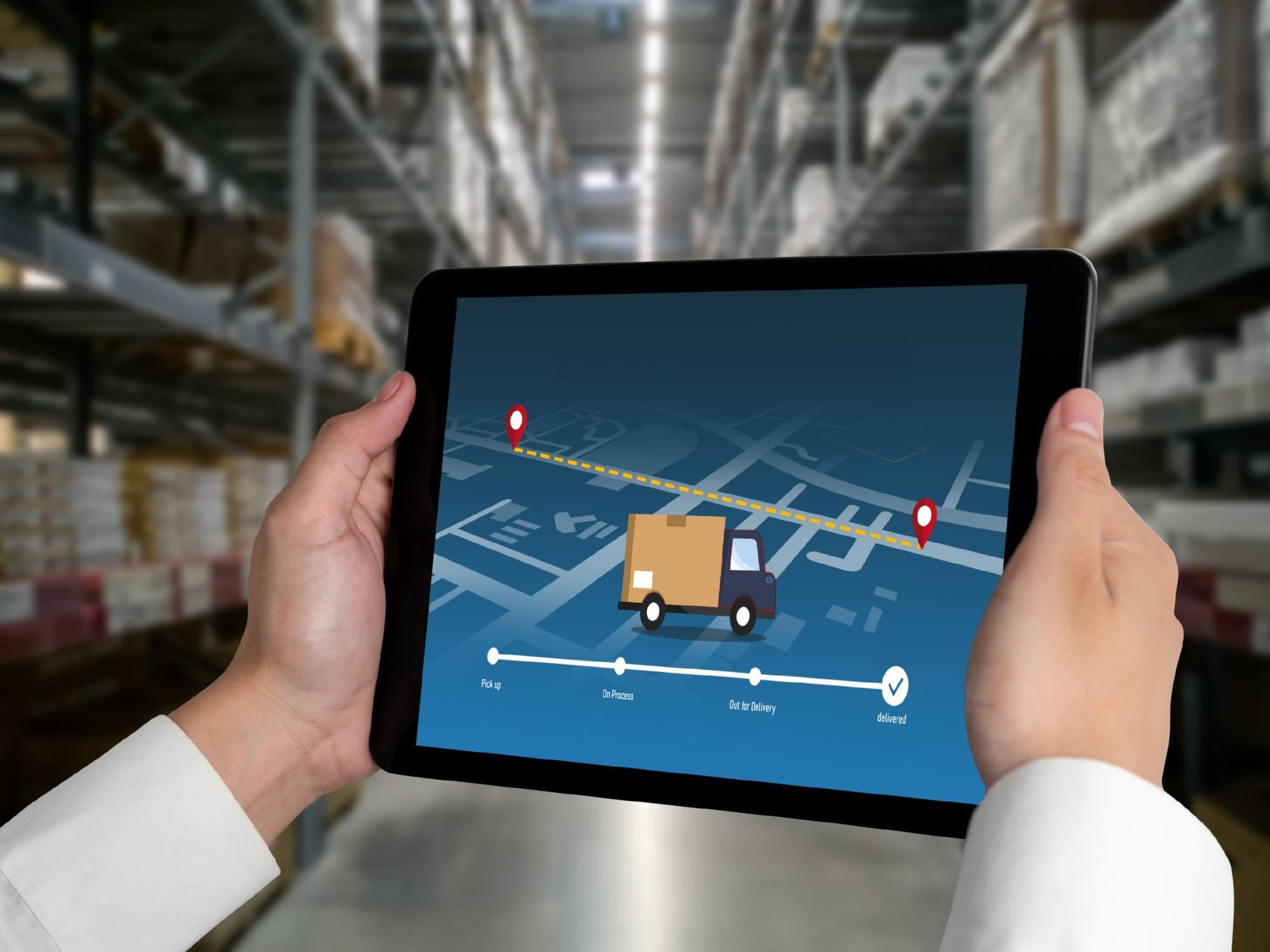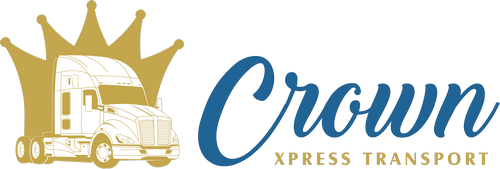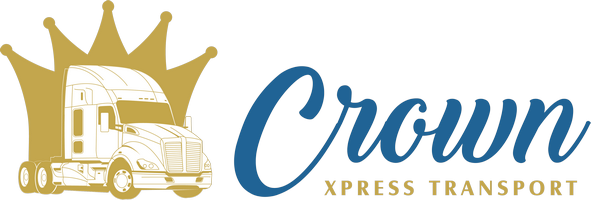
By Crown Xpress Transport | November 1, 2025 | Read time: 12 minutes
The trucking technology trends are experiencing the most significant technological transformation in its history. What once seemed like science fiction—trucks predicting their own failures, artificial intelligence optimizing routes in milliseconds, semi-autonomous vehicles navigating highways—is now the operational reality of 2025.
At Crown Xpress Transport, as leaders in transportation innovation connecting Mexico and the United States, we’ve been witnesses and active participants in this revolution. This article explores the 7 technologies that aren’t just changing our industry, but redefining what it means to be a competitive and future-ready transportation company.
Whether you’re a logistics manager, operations director, or simply someone fascinated by how technology is transforming traditional industries, this guide will give you a complete perspective on where freight transportation is heading.
Why Technology is Critical for Modern Trucking

Before diving into specific technologies, let’s understand why this transformation isn’t optional, but imperative for survival in the industry.
The 2025 Context:
The numbers speak:
- Cross-border trade between Mexico and the U.S. exceeded $800 billion in 2024
- 85% of land freight in North America moves by truck
- Demand for faster deliveries has grown 40% in the last 3 years
- Operating margins have compressed 15% due to competition
Expectations have changed: 2025 customers don’t just want their freight to arrive, they want:
- To know exactly where it is at all times
- Receive proactive alerts of any changes
- Have total supply chain visibility
- Sustainability reports per shipment
- Guarantees backed by data, not promises
The cost of falling behind: Transportation companies that haven’t adopted technology are seeing:
- Loss of customers to more technological competitors
- Operating costs 25-30% higher
- Inability to scale operations
- Impossibility of attracting young talent
- Vulnerability to crises (as the pandemic demonstrated)
With this context, let’s explore the technologies separating leaders from laggards.
The 7 Disruptive Technologies in Freight Transportation
- Artificial Intelligence and Predictive Analytics
What it is: AI in trucking isn’t a robot driving a truck (that comes later). It’s intelligent software that analyzes millions of data points in real-time to make smarter decisions than any human could make manually.
Practical applications in 2025:
🤖 Demand Forecasting AI algorithms analyze historical patterns, seasonality, special events, and even weather to predict when and where you’ll need transportation capacity.
Real example: A manufacturing client uses our AI-powered system that predicted with 95% accuracy their 40% volume increase during Q4, allowing them to secure capacity in advance.
🤖 Dynamic Dispatch Optimization AI assigns loads to trucks considering hundreds of variables: current location, driver hours of service, scheduled maintenance, real-time traffic, and customer preferences.
Result: We’ve reduced “empty miles” (trucks running without load) by 18% using AI dispatch.
🤖 Driver Behavior Analysis AI systems analyze telematics to identify risky driving patterns before they cause accidents.
Impact: 22% reduction in safety incidents in fleets implementing AI-based coaching.
Why it matters: AI doesn’t replace human expertise, it amplifies it. It allows your team to make data-driven decisions, not intuition-based, and scales that intelligence across your entire operation.
- Semi-Autonomous Vehicles and Advanced Driver Assistance
What it is: While fully autonomous trucks (without drivers) are still years away from mainstream, semi-autonomous technology is already on 2025 roads.
Semi-autonomous technologies active today:
🚛 Adaptive Cruise Control (ACC) Not your grandfather’s cruise control. Modern systems automatically maintain safe following distance, accelerating and braking without driver intervention.
🚛 Lane Keeping Assistance Sensors and cameras keep the truck centered in the lane, subtly correcting the steering wheel if drift is detected.
🚛 Automatic Emergency Braking (AEB) If the system detects an imminent collision and the driver doesn’t respond, it automatically activates the brakes.
🚛 Advanced Blind Spot Monitoring Radars and cameras create a 360° view of the truck, alerting the driver to vehicles in blind spots.
🚛 Driver Fatigue Detection Infrared cameras monitor the driver’s eyes, detecting signs of drowsiness and issuing alerts.
The road to full autonomy:
2025-2027: Mass adoption of semi-autonomy (Level 2-3) 2028-2030: First autonomous trucks on controlled routes 2031-2035: Highway autonomy on interstate routes 2036+: Full autonomy including urban areas
Real impact: Fleets with semi-autonomous technology report:
- 30% reduction in accidents
- 15% improvement in fuel efficiency
- 25% decrease in driver fatigue
At Crown Xpress Transport, we’re progressively investing in these technologies, prioritizing safety and proven ROI.
- Next-Generation Telematics
What it is: Telematics is the combination of telecommunications and informatics to transmit vehicle data to the cloud in real-time.
Evolution of telematics:
- 2015: Basic GPS location
- 2020: GPS + fuel consumption + speed
- 2025: Complete vehicular data ecosystem
What modern telematics monitors:
📊 Vehicle data:
- GPS location (updated every 30 seconds)
- Engine RPM
- Engine temperature
- Real-time tire pressure
- Fluid levels
- System fault codes
- Fuel consumption per segment
- Brake usage
- Harsh acceleration/braking
📊 Driver data:
- Hours of service (HOS)
- Rest times
- Driving patterns
- Speed compliance
- Seatbelt usage
- Safety events
📊 Environmental data:
- Cargo temperature (refrigerated)
- Humidity
- Vibration/impacts
- Door openings
Practical applications:
✅ Customer visibility Your customer sees exactly where their freight is, without calling to ask.
✅ Proactive maintenance “Your truck X will need oil change in 500 miles” – system automatically schedules.
✅ Regulatory compliance Automatic electronic logs eliminate paperwork and HOS errors.
✅ Driver coaching “Driver John has 15% more harsh braking than average” – training opportunity.
The Crown Xpress Transport system: Our customer portal offers:
- Live location updated every 2 minutes
- Complete route history
- Automatic milestone alerts
- Cargo temperature (refrigerated)
- Dynamically calculated ETA
- API integration with your ERP
- CNG Trucks
What it is: The future of transportation is GAS CNG, but the path there is gradual and pragmatic.
Current state in 2025:
CNG Trucks Manufacturers like Volvo, Daimler and Peterbilt offer CNG trucks with 180-310 mile range per charge.
Advantages:
- Zero direct emissions
- 60-70% lower maintenance costs
- Quieter operation
- Significant government incentives
- Better for brand image
Current limitations:
- High initial cost ($150,000-$250,000 USD more than diesel)
- Limited charging infrastructure
- Charging time (45 min to 3 hrs)
- Better for short/regional routes
Crown Xpress Transport strategy: We’re actively monitoring GNC technology and have identified 3 local routes where we’ll implement pilots in 2026. Our approach: innovate with purpose, not hype.
- Blockchain for Complete Traceability
transparent history of transactions.
Why it’s revolutionary for transportation:
🔗 Incorruptible traceability Every event in the supply chain (loading, transport, border crossing, delivery) is recorded in linked blocks that cannot be altered retroactively.
Practical example: A container of electronics going from Shenzhen to Tijuana passes through:
- Manufacturer in China (records on blockchain)
- Shanghai Port (validates and records)
- Transpacific vessel (updates location)
- Long Beach Port (validates arrival)
- Crown Xpress Transport (records pickup)
- Tijuana Customs (validates documents)
- Final customer (confirms delivery)
Each step is recorded, verified by multiple parties, and instantly auditable.
🔗 Smart Contracts Self-executing agreements programmed on blockchain.
Example: “If container arrives before 2pm on November 15, pay full rate. If arrives after, apply 10% discount automatically.”
Smart contract executes payment automatically without human intervention, based on telematics data verified on blockchain.
🔗 Verifiable digital documentation Goodbye paperwork. Invoices, customs entries, certificates of origin, manifests—all digitized, verified, and instantly accessible.
Concrete benefits:
✅ Reduction of document fraud ✅ Faster border crossings ✅ Disputes resolved with immutable evidence ✅ Instant audits vs weeks ✅ Automatic compliance
Adoption in 2025: Blockchain in transportation is still in early adoption, but large retailers and manufacturers are demanding it. At Crown Xpress Transport, we’re preparing our infrastructure to integrate with enterprise customer blockchain platforms.
- Predictive Maintenance with IoT
What it is: Internet of Things (IoT) means connected sensors collecting real-time data. Predictive maintenance uses that data to anticipate failures before they occur.
How it works:
🔧 Installed IoT sensors:
- Engine oil temperature
- Component vibration
- Fluid pressure
- Brake temperature
- Battery degradation
- Tire wear
- Air filters
🔧 Machine learning algorithms analyze: Millions of previous failure data points to identify “signatures” that precede problems.
Example: The algorithm learns that when oil temperature increases 9°F above average AND crankshaft vibration increases 8% AND oil consumption increases 12%, there’s 87% probability of engine failure in next 600 miles.
🔧 System proactively alerts: “Truck #347 needs engine inspection before next long trip. Schedule at Tijuana shop.”
Economic impact:
📈 Before (reactive maintenance):
- Unexpected roadside failure
- Towing cost: $1,500
- Emergency repair: $4,000
- Delayed load: $2,000 in penalties
- Unhappy customer
- Total: $7,500 + reputational damage
📈 Now (predictive maintenance):
- System alerts 5 days ahead
- Scheduled maintenance: $800
- Zero unplanned downtime
- Customer never knows
- Total: $800
Savings: 90%
Additional benefits: ✅ Extension of vehicle lifespan 20-30% ✅ Reduction of unplanned downtime 45% ✅ Improvement in fuel efficiency 8-12% ✅ Increase in fleet availability
At Crown Xpress Transport, we implemented IoT sensors on 100% of our fleet in 2024, resulting in a 38% reduction in unplanned failures.
- Real-Time Route Optimization
What it is: You no longer plan a route before leaving and follow it blindly. Modern systems adjust the route every second based on live data.
Variables considered in real-time:
🗺️ Current traffic:
- Accidents
- Construction
- Congestion
- Road closures
🗺️ Weather:
- Current rain/snow
- Forecasts along route
- Visibility
- Road conditions
🗺️ Borders:
- Crossing wait times
- Open lanes
- Secondary inspections
🗺️ Driver:
- Remaining hours of service
- Rest area locations
- Preferred fuel stations
🗺️ Vehicle:
- Fuel level
- Weight/height restrictions
- Scheduled maintenance
🗺️ Customer:
- Delivery windows
- Shipment priority
- Special requirements
Technology behind it:
🤖 AI and machine learning Algorithms process millions of historical routes to learn what works best.
🤖 Big data in the cloud Data from thousands of vehicles, Waze, Google Maps, weather stations, customs, all feeding the system.
🤖 Edge computing In-vehicle processing for instant decisions without depending on connection.
Real use case:
Situation: Truck left Tijuana toward Los Angeles at 6am.
7:15am: System detects major accident on I-5 North. Calculates it will cause 2-hour delay.
7:16am: AI evaluates 47 alternative routes considering all variables.
7:17am: System suggests alternate route via CA-94 that adds 15 minutes but avoids jam.
7:17am: Driver accepts suggestion with one touch.
7:18am: Customer receives automatic alert: “Your shipment taking alternate route. Updated ETA: 11:25am (15 min later). Reason: Accident on original route avoided.”
11:22am: Successful delivery, customer impressed by proactive communication.
Result: What would have been 2 hours delay became 15 minutes, and customer was informed proactively instead of calling asking where their freight is.
Measurable benefits: ✅ 12-15% reduction in transit time ✅ 8-10% fuel savings ✅ 25% reduction in “where’s my freight?” calls ✅ 30% improvement in on-time deliveries ✅ Happier customers
How Crown Xpress Transport Integrates These Technologies
It’s not enough to know what technologies exist. The critical question is: how do you implement them to generate ROI and improve your service?
At Crown Xpress Transport, our technology philosophy is based on three principles:
- Innovation with Purpose
We don’t adopt technology for being “trendy.” Every technology investment must answer:
- Does it improve customer experience?
- Does it reduce operating costs?
- Does it increase safety?
- Does it generate sustainable competitive advantage?
If the answer is “yes” to at least two, we move forward with a pilot.
- Gradual and Measured Implementation
We don’t transform the entire operation overnight. Our process:
Phase 1 – Pilot (3 months): Implement on 10% of fleet on controlled routes. Measure everything.
Phase 2 – Evaluation (1 month): Analyze data, ROI, feedback from drivers and customers. Adjust.
Phase 3 – Expansion (6 months): If pilot is successful, gradually scale to entire fleet.
Phase 4 – Optimization (continuous): We never stop improving and adjusting.
- Training is Key
The best technology fails if your team doesn’t know how to use it or fears it.
We invest significantly in:
- Hands-on training
- 24/7 support
- Clear documentation
- Adoption culture (not imposition)
Our Current Technology Stack:
✅ Implemented and operational:
- Advanced telematics on 100% of fleet
- AI-powered route optimization system
- Customer portal with live tracking
- Predictive maintenance with IoT
- ELDs (Electronic Logging Devices)
- AI-powered dashcams on 80% of units
🔄 In implementation (2025):
- Blockchain for enterprise customers
- Semi-autonomy expansion (ACC, AEB)
- Advanced predictive analytics platform
🔮 Evaluating for 2026:
- Electric truck pilot (3 local routes)
- Smart contracts for automatic payments
- Integration with collaborative economy platforms
The Future of Trucking: What to Expect in 2026-2030
If 2025 seems futuristic, prepare for the next 5 years.
2026-2027: The Hyperconnected Era
- Ubiquitous 5G: Ultra-fast connectivity on all major routes
- Digital twins: Digital replicas of each truck for simulation
- Augmented reality: Mechanics using AR for diagnostics
- Inspection drones: Drones verifying loads and vehicles
2028-2029: Autonomy Emerges
- Level 4 autonomous trucks: On controlled highways between cities
- Platooning: Convoys of trucks following each other autonomously
- Transfer hubs: Human operators for first/last mile, autonomous for highway
2030+: The New Normal
- Majority of fleet is electric or hydrogen
- AI manages 70% of operational decisions
- Blockchain is standard, not exception
- Drivers are “vehicle managers,” not just drivers
What WON’T change:
- The need for human expertise in complex logistics
- The importance of client-provider relationships
- The value of reliability and commitment
- The scarcity of good drivers and professionals
Conclusion: Technology is Tool, Service is Essence
We’ve explored 7 transformative technologies: AI, semi-autonomy, advanced telematics, electric vehicles, blockchain, predictive maintenance, and real-time route optimization.
But here’s the truth you shouldn’t forget:
Technology is a powerful tool, but it’s not the business itself.
At Crown Xpress Transport, we’re not a technology company that does transportation. We’re a transportation company that uses technology to serve better.
Our promise—”Leading innovation in transportation”—doesn’t change with technology. Technology simply allows us to fulfill it better.
Are you ready for the future of transportation?
If your company depends on efficient, reliable, and transparent logistics, you need a partner who doesn’t just talk about technology, but implements it intelligently for your benefit.
At Crown Xpress Transport, we invest in technology so you don’t have to worry about it. You just have to see results:
- On-time deliveries
- Total visibility
- Proactive communication
- Optimized costs
- Complete peace of mind
Next Steps
Want to experience how modern technology improves your logistics?
📞 Contact Crown Xpress Transport:
- Phone: [Contact Number]
- Website: www.crownxt.com
- Request a demo of our customer portal
- Ask about our drayage, border crossing, and regional transport services
Our team of specialists is ready to show you how technology translates into better service for your specific operation.
Frequently Asked Questions (FAQ)
What is the most important technology in trucking in 2025? There isn’t one single “most important.” Advanced telematics and AI for route optimization offer the best short-term ROI, while electric vehicles and semi-autonomy are long-term investments.
Will autonomous trucks replace drivers? Not in the near future. By 2030, we’ll see autonomy in limited segments (long highways), but human drivers will remain essential for complex navigation, first/last mile, and critical decision-making.
Is it worth investing in electric trucks now? Depends on your operation. For local routes (<180 miles), with fixed base, and access to charging infrastructure, EVs already make financial sense. For long distances, wait 2-3 years. Consult with experts to evaluate your specific case.
How do I protect my technology investment from becoming obsolete? Focus on technologies with open standards and interoperability. Avoid closed proprietary systems. Work with vendors that regularly update software. Plan 3-5 year update cycles.
Can small companies compete with the technology large ones use? Absolutely. Many technologies now offered as “service” (SaaS) without large initial investments. What matters isn’t your fleet size, but your commitment to using it effectively.
About Crown Xpress Transport:
Crown Xpress Transport is a leading company in international transportation, at the forefront of innovation connecting Mexico and the United States. Specialized in border crossing, port drayage, local and regional transport, we offer comprehensive logistics solutions backed by cutting-edge technology and a team committed to excellence.
Certified, technological, reliable. Moving your future, today.

